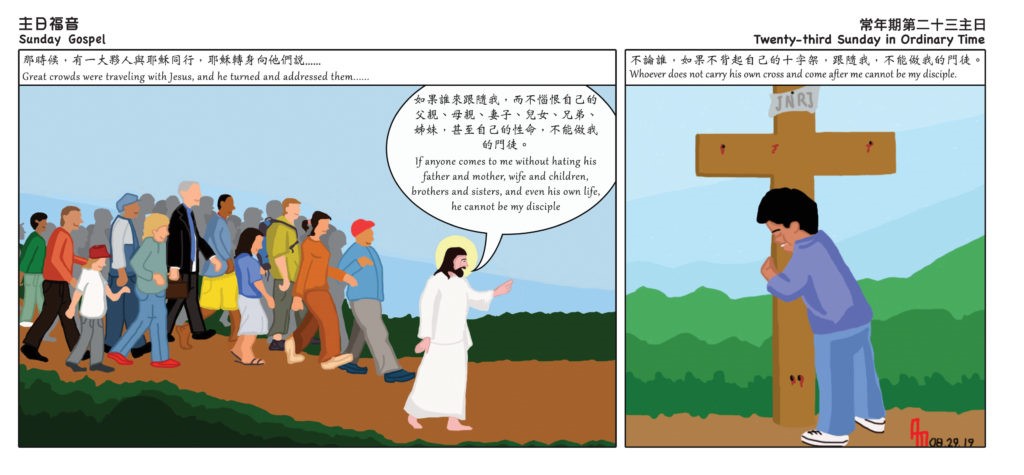Luke 14:25-33
– Fr Fernando Armellini SCJ
Claretian Publications, Macau
Jesus makes three very hard requests that end with the same severe refrain: cannot be my disciple! Luke wants to address these words of Jesus to the many converts of his communities (to us today) who are attracted by the Master, feel sympathy for him and his message but are also tempted to “tame” the Gospel, to make it more negotiable. The conditions that Jesus places are clear and are not negotiable.
The first: “If you come to me, unwilling to hate your father and mother, your spouse and children, your brothers and sisters, and indeed yourself, you cannot be my disciple” (v. 26). How is it possible? The Christian is one who loves everyone, even the enemies.
Someone solves the difficulty by arguing that, in the language of Jesus, the word to hate also means “to love less,” “to put in second place.” It’s true, but perhaps this is not the right solution. To reduce the severe words of the Master to a simple question of quantity: “to love more—to love less” means not understand them.
To hate is to have the courage to break even the most loved bonds when they constitute an impediment to following him, even when it means to go in disagreement with a friend, offend the sensibilities of some family, giving up choices of compromise. These detachments, these positions can be classified as “hate,” but they are courageous gestures of genuine love.
The second condition: “Whoever does not follow me, carrying his own cross, cannot be my disciple” (v. 27). Jesus does not make a request for resignation, but of willingness to testify one’s own faith, even with one’s life. Martyrdom is a possibility to take into account for the proposal of new life—that of the Beatitudes. One may be subjected to verbal, physical and social abuse and even death like Jesus.
The two parables of the farmer who builds the tower and the king on the way to a war are to remind of the seriousness and commitment that the choice discipleship entails. Whoever has heard the Gospel cannot delude himself that he is already a disciple. The impulses and the initial enthusiasm are not sufficient; constancy and strength are necessary to persevere.
The third condition: None of you may become my disciple if one doesn’t give up everything one has (v. 33). It is not about giving a few coins as alms. One has to give up everything. It is not a joke! To consider the invitation as addressed only to monks and nuns is a convenient interpretation we are taught to believe. The demand for total detachment from assets is not addressed only to some, but to everyone who comes to Jesus. It is not easy, it is challenging!!!
Translated by Fr John Ledesma SDB
Abridged by Fr Jijo Kandamkulathy CMF


 Follow
Follow


